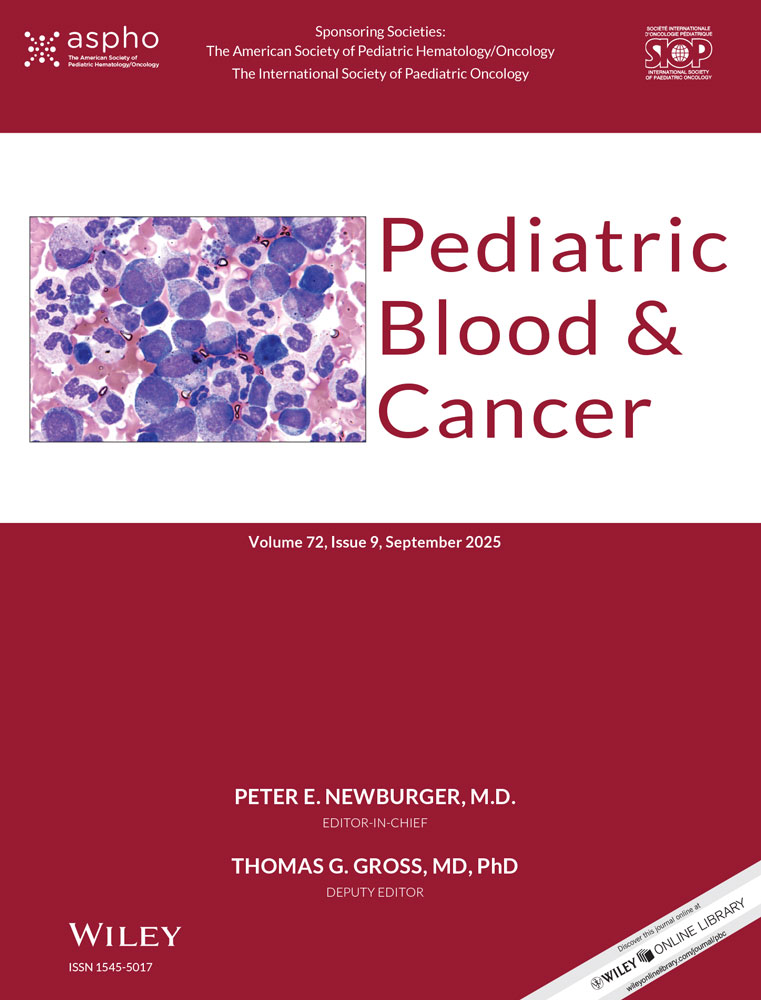Delayed craniospinal irradiation for a first isolated central nervous relapse of acute lymphoblastic leukemia: Report on 14 cases
Abstract
Background
Children developing an isolated central nervous system (CNS) relapse as first recurrence of their acute lymphoblastic leukemia (ALL) are considered to have a systemic relapse as well. They are mostly treated with intensive chemotherapy and craniospinal irradiation. In most treatment schedules, irradiation is given early after induction treatment. Because craniospinal irradiation affects a large portion of hematopoietic bone marrow systemically, treatment is often delayed owing to aplasias. Also, dose reductions are frequently needed. Children receiving simultaneously irradiation and chemotherapy are prone to (often severe) neurotoxicity. This study reports on children with a first isolated CNS relapse of their ALL receiving chemotherapy for 40 weeks. Treatment ends with the administration of irradiation given after cessation of chemotherapy.
Procedure
Fourteen children, with blasts and >5 cells/mm3 in two consecutive samples of cerebrospinal fluid and a blast per-centage <5% in their bone marrow were treated according to an intensive systemic and site-specific chemotherapy. Craniospinal irradiation was administered after cessation chemotherapy.
Results
Event-free-survival was 57% (confidence interval 35–89%), freedom from relapse was 61.5%; follow-up ranges from 2.0 to 15.1 years (median 11.7 years). One child died from septicemia during induction. Five children experienced a second relapse and died from their malignancy. Two children [with a t(9;22) or a rearranged MLL gene] relapsed prior to radiotherapy. Outcome was related to duration of first remission, age at relapse, and identification as a high-risk patient at initial diagnosis. No neurologic complications were noted during and after treatment.
Conclusions
Delayed irradiation for isolated CNS relapse in children with ALL gives favorable survival rates, without significant toxicity. Neurotoxicity was absent. Med. Pediatr. Oncol. 34:402–406, 2000. © 2000 Wiley-Liss, Inc.




